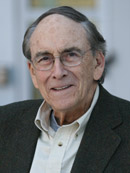Difference between revisions of "Kenneth Keniston"
Jump to navigation
Jump to search
(Created page with "{{person |wikipedia= |amazon=https://www.amazon.com/Kenneth-Keniston/e/B001H6Q9RO |twitter= |interests=youth |nationality= |birth_date= |birth_place= |death_date= |death_place...") |
|||
| (4 intermediate revisions by the same user not shown) | |||
| Line 1: | Line 1: | ||
{{person | {{person | ||
| − | |wikipedia= | + | |wikipedia=https://en.wikipedia.org/wiki/Ken_Keniston |
| + | |image=Kenneth Keniston.jpg | ||
|amazon=https://www.amazon.com/Kenneth-Keniston/e/B001H6Q9RO | |amazon=https://www.amazon.com/Kenneth-Keniston/e/B001H6Q9RO | ||
| − | |||
|interests=youth | |interests=youth | ||
| − | |nationality= | + | |nationality=US |
| − | |birth_date= | + | |birth_date=6 January 1930 |
| − | |birth_place= | + | |birth_place=Chicago |
| − | |death_date= | + | |spouses=Suzanne Berger |
| + | |description=US academic who spoke on "youth" at the [[1969 Bilderberg]] | ||
| + | |alma_mater=Harvard University, Oxford University/Balliol College | ||
| + | |death_date=14 February 2020 | ||
|death_place= | |death_place= | ||
|constitutes=academic | |constitutes=academic | ||
}} | }} | ||
==Career== | ==Career== | ||
| − | In 1971 Kenneth Keniston developed the idea of [[youth]]. He highlighted some of the various themes and transformations he viewed as crucial in defining “youth” as a stage of life. In his book Youth and Dissent: A Rise in a New Opposition, he discusses the underlying differences between what is referred to as adolescence and young adulthood. He claims that adolescence is typically reflective of an incline in immaturity and a reflection in youthful behavior | + | In 1971 Kenneth Keniston developed the idea of [[youth]]. He highlighted some of the various themes and transformations he viewed as crucial in defining “youth” as a stage of life. In his book Youth and Dissent: A Rise in a New Opposition, he discusses the underlying differences between what is referred to as adolescence and young adulthood. He claims that adolescence is typically reflective of an incline in immaturity and a reflection in youthful behavior. |
| + | |||
| + | Keniston taught at [[Harvard University]] and [[Yale University]] before joining the [[MIT]] faculty in 1977, | ||
| + | |||
{{SMWDocs}} | {{SMWDocs}} | ||
==References== | ==References== | ||
{{reflist}} | {{reflist}} | ||
| − | |||
Latest revision as of 15:39, 15 September 2020
(academic) | |
|---|---|
 | |
| Born | 6 January 1930 Chicago |
| Died | 14 February 2020 (Age 90) |
| Nationality | US |
| Alma mater | Harvard University, Oxford University/Balliol College |
| Spouse | Suzanne Berger |
| Member of | Harvard/International Seminar/1954, Harvard/International Seminar/1956, Harvard/International Seminar/1957, Rhodes Scholar/1951 |
| Interests | youth |
US academic who spoke on "youth" at the 1969 Bilderberg | |
Career
In 1971 Kenneth Keniston developed the idea of youth. He highlighted some of the various themes and transformations he viewed as crucial in defining “youth” as a stage of life. In his book Youth and Dissent: A Rise in a New Opposition, he discusses the underlying differences between what is referred to as adolescence and young adulthood. He claims that adolescence is typically reflective of an incline in immaturity and a reflection in youthful behavior.
Keniston taught at Harvard University and Yale University before joining the MIT faculty in 1977,
Event Participated in
| Event | Start | End | Location(s) | Description |
|---|---|---|---|---|
| Bilderberg/1969 | 9 May 1969 | 11 May 1969 | Denmark Hotel Marienlyst Elsinore | The 18th Bilderberg meeting, with 85 participants |
Many thanks to our Patrons who cover ~2/3 of our hosting bill. Please join them if you can.